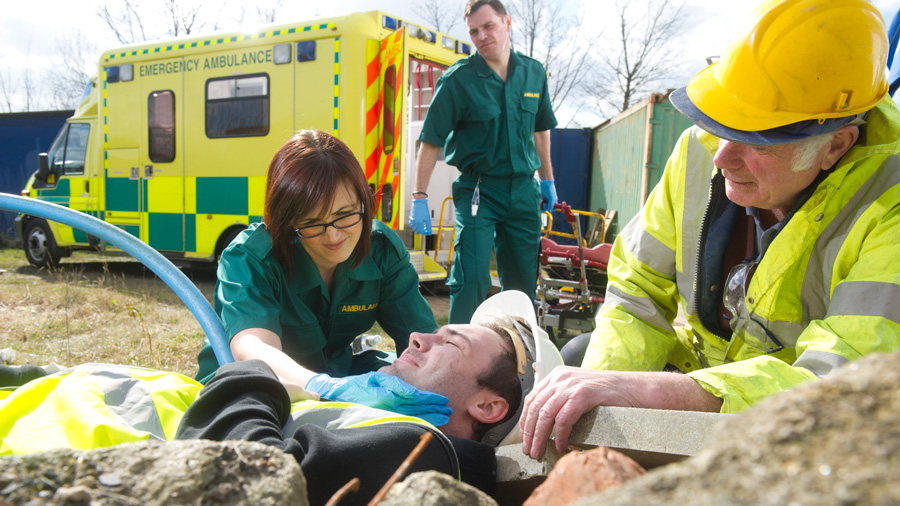The Health and Safety Executive (HSE) has released its annual figures for work-related fatalities, as well as the number of people known to have died from the asbestos-related cancer, mesothelioma, in 2015.
The provisional annual data for work-related fatal accidents revealed that 137 workers were fatally injured between April 2016 and March 2017 a rate of 0.43 per 100,000 workers), the second lowest year on record.
There has been a long-term downward trend in the number of fatal injuries to workers – they have halved over the last 20 years – although in recent years the trend shows signs of levelling.
The new figures show the rate of fatal injuries in several key industrial sectors:
- 30 fatal injuries to construction workers were recorded. While this accounts for the largest share, this is the lowest number on record for the sector. However, over the last five years the number has fluctuated, The annual average for the past five years is 39. The annual average rate over the last five years in construction is around four times as high as the all industry rate.
- 27 fatal injuries to agricultural workers were recorded. This sector continues to account for a large share of the annual fatality count. It has the highest rate of fatal injury of all the main industry sectors, around 18 times as high as the all industry rate.
- 14 fatal injuries to waste and recycling workers were recorded. Despite being a relatively small sector in terms of employment, the annual average fatal injury rate over the last five years is around 15 times as high as the all industry rate.
Age concern!
The new figures also highlight the risks to older workers – around a quarter of fatal injuries in 2016/17 were to workers aged 60 or over, even though such workers made up only around 10% of the workforce.
There were also 92 members of the public fatally injured in accidents connected to work in 2016/17. Almost half of these occurred on railways with the remainder occurring across a number of sectors including public services, entertainment and recreation.
Mesothelioma, one of the few work related diseases where deaths can be counted directly, contracted through past exposure to asbestos killed 2,542 in Great Britain in 2015 compared to 2,519 in 2014. The current figures relating to asbestos-related cancer reflect widespread exposures before 1980. Annual deaths are therefore expected to start to reduce after this current decade.
A fuller assessment of work related ill-health and injuries, drawing on HSE’s full range of data sources, will be provided as part of the annual Health and Safety Statistics release on 1 November 2017.
The average rate of fatal injury over the last five years has been 0.46 per 100, 000 workers. In each of the last five years, the number of fatal injuries has been:
- 2015/16 – 147 workers died
- 2014/15 – 142 workers died
- 2013/14 – 136 workers died
- 2012/13 – 150 workers died
- 2011/12 – 171 workers died
There were 2542 mesothelioma deaths in 2015, a similar number to the 2519 deaths in 2014. The increase in mesothelioma deaths in recent years has been driven mainly by deaths among those aged 75 and above. Of the deaths in 2015, 407 were among women and 2135 were among men – again this ratio is consistent with previous years. The latest projections suggest there will continue to be around 2500 deaths per year for the rest of this current decade before annual numbers begin to decline. The current figures relating to asbestos-related cancer reflect widespread exposures before 1980.
The reporting of health and safety incidents at work is a statutory requirement, set out under the Reporting of Injuries, Diseases and Dangerous Occurrences Regulations (RIDDOR). A reportable incident includes: a death or specified injury; any accident which does not result in a specified injury, but the injured person still has to take seven or more days off their normal work to recover; a work related disease; a member of the public being injured as a result of work related activity and taken to hospital for treatment; or a dangerous occurrence, which does not result in a serious injury, but could have done.
C&C Consulting Services Ltd include a comprehensive advisory and investigation service for retained clients, we will assist the employer in determining the RIDDOR requirements, assist in the completion of documentation, determine the level of investigation required following an incident and prepare the report resulting from the investigation.











